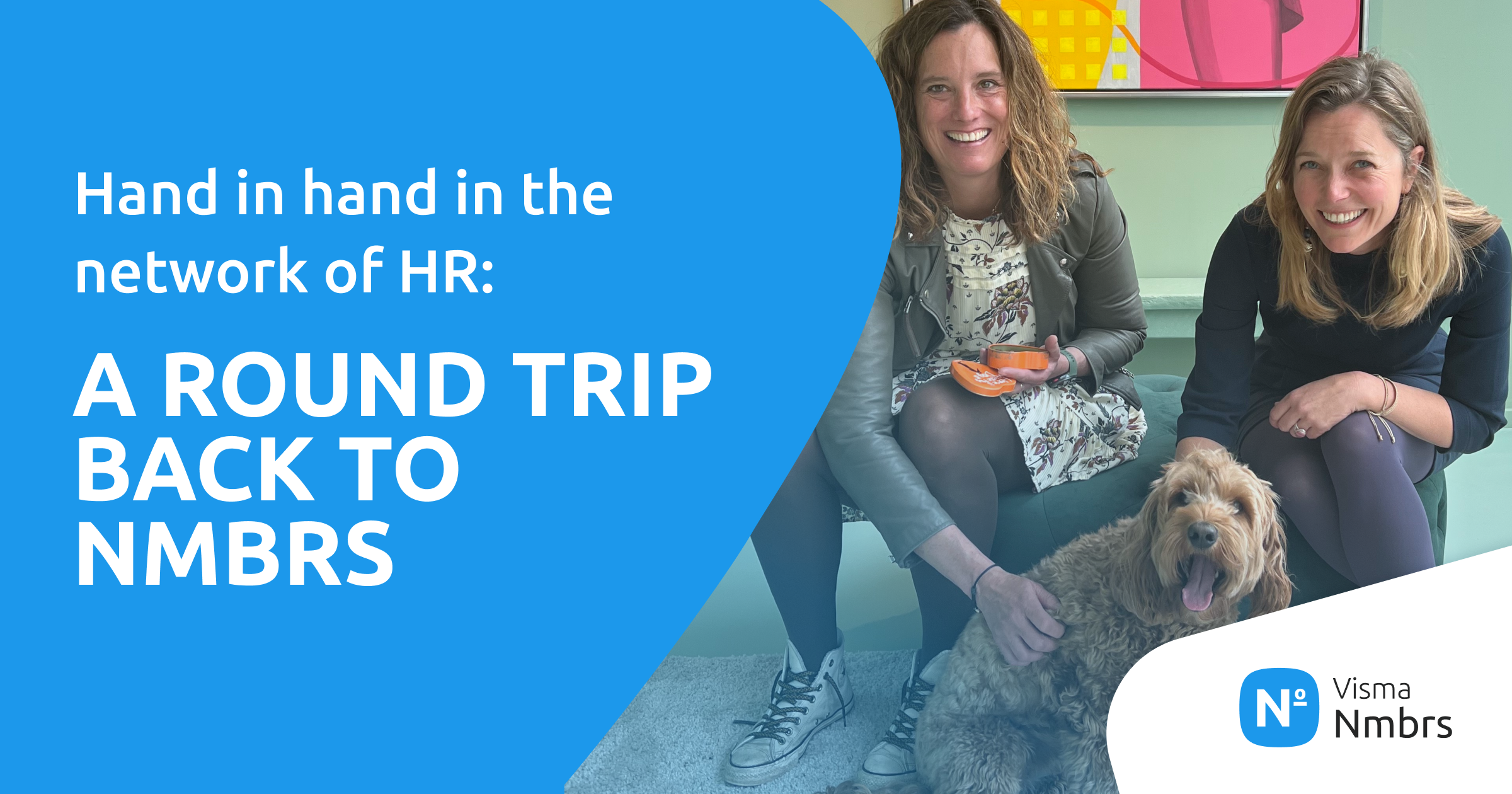Blog overview

Working less to Achieve more: why we think the 4-day Workweek will work
Summer is almost coming to an end. Schools have started up again and most people have returned to work by now. If you were able to enjoy some time off, I hope it did you well. What I’m also wondering...
Recent posts

Nmbrs wins FD Gazelle award for the fourteenth time in a row
Fourteen times! That is how often we at Nmbrs have received the FD Gazelle...

Smart integrations for the hospitality sector
Suppose you are an employer with a new restaurant. You are looking for useful...

Thanks to Nmbrs integrations, accountants and employers excel
Each product must do what it does best. We are firm believers of this...

How to make employees feel more welcome in the workplace
Paying attention to how our employees are seen and heard as soon as they step...

Visma Nmbrs & Pride: from 7 days to 365 days per year
Yay! Pride week started this Saturday on the 30th of July. That means that this...

It’s all about the journey: Wouter Hofman
Meet Wouter Hofman. He is a QA from Purmerend in The Netherlands, and today he...

Receive monthly updates in your mailbox

Nmbrs API's. It's as simple as that.
The world of APIs sometimes feels like a maze. What is the difference between...

Why we should be thinking more about data
Data has never been of more importance, nor has there ever been such vast...

A chat with Patricia van Es, payroll administrator and owner of PvExpert.
The name PvExpert originated from a combination between the initials of...

A round trip back to Nmbrs
We have come full circle. That with the succession of Mariel Dommering by...

It’s all about the journey: Ana Elisa Franchini
Meet Ana Elisa Franchini. She is a product designer (delivering interface and...

Summer internship: why you should do one at Nmbrs
Summer is coming, and apart from it being the time for sun, beach, and...
All articles

Nmbrs wins FD Gazelle award for the fourteenth time in a row
Fourteen times! That is how often we at Nmbrs have received the FD Gazelle...

Smart integrations for the hospitality sector
Suppose you are an employer with a new restaurant. You are looking for useful...

Thanks to Nmbrs integrations, accountants and employers excel
Each product must do what it does best. We are firm believers of this...

Nmbrs API's. It's as simple as that.
The world of APIs sometimes feels like a maze. What is the difference between...

Working less to Achieve more: why we think the 4-day Workweek will work
Summer is almost coming to an end. Schools have started up again and most...

How to make employees feel more welcome in the workplace
Paying attention to how our employees are seen and heard as soon as they step...

Visma Nmbrs & Pride: from 7 days to 365 days per year
Yay! Pride week started this Saturday on the 30th of July. That means that this...

It’s all about the journey: Wouter Hofman
Meet Wouter Hofman. He is a QA from Purmerend in The Netherlands, and today he...

A round trip back to Nmbrs
We have come full circle. That with the succession of Mariel Dommering by...

It’s all about the journey: Ana Elisa Franchini
Meet Ana Elisa Franchini. She is a product designer (delivering interface and...

Summer internship: why you should do one at Nmbrs
Summer is coming, and apart from it being the time for sun, beach, and...

Remote Hiring: 5 topics to consider when hiring for cultural fit
At Nmbrs, before the Coronavirus crises, we were already doing the hiring...
All articles


